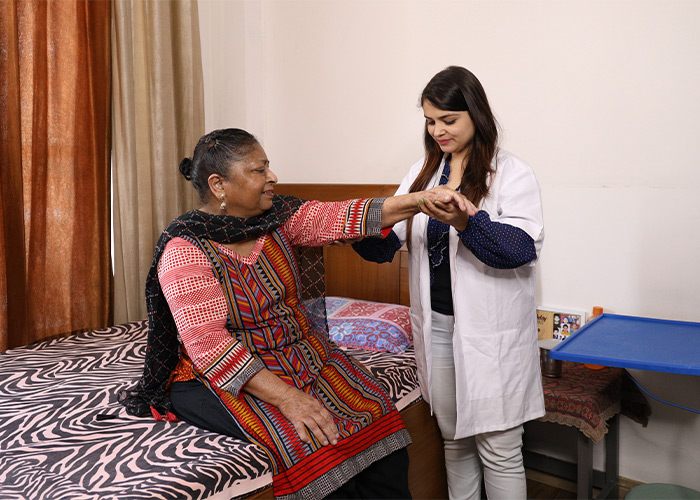Since the 1918 influenza pandemic, it has been a while since the flu virus was in the news for making an average; healthy person very sick. H3N2 is a subtype of the influenza A virus that causes seasonal flu in humans. The virus is known to mutate rapidly, making it difficult to predict and prevent outbreaks. In this blog post, we will discuss the H3N2 virus, its symptoms, transmission, and treatment.
Symptoms:
While the symptoms of the H3N2 virus are largely fever, sore throat, sneezing and bodyache, a long-lasting cough is being reported widely by patients. This, experts say, could be due to the fact that pollution is mixing with the extra mucus production by the respiratory tract during the infection. Pollutants in the air also inflame the lungs and lower immunity, making recovery long and tedious for flu patients in highly polluted zones. People who have underlying multiple health-related conditions or weakened immune systems are more susceptible to developing severe symptoms and may take longer to recover from the illness. The symptoms of H3N2 virus are similar to those of seasonal flu, including fever, cough, sore throat, body aches, fatigue, and chills. In some cases, the virus can lead to more severe complications such as pneumonia, bronchitis, or even death, especially in young children, older adults, and people with weakened immune systems.
Transmission:
The H3N2 virus is highly contagious and can spread through the air when an infected person coughs, sneezes, or talks. It can also spread through direct contact with surfaces or objects contaminated with the virus, such as door handles, countertops, or utensils. The virus can survive on surfaces for up to 24 hours, making it easy to spread from person to person.
Prevention:
The best way to prevent the spread of H3N2 virus is to get an annual flu vaccine. The vaccine is typically available in the fall and is recommended for everyone over the age of six months. The vaccine can reduce the risk of contracting the virus and can also reduce the severity of symptoms if someone does get infected.
Other ways to prevent the spread of the virus include washing hands frequently with soap and water, avoiding close contact with sick people, covering the mouth and nose with a tissue when coughing or sneezing, and staying home from work or schoolif feeling sick.
Treatment:
If someone does become infected with the H3N2 virus, consult Doctor immediately.. When down with the flu, it is important not to self-dose on antibiotics as not all patients would need it. Post-recovery, doctors say one should still take it easy for a few days and gradually build up their activity levels. Vitamin supplements can be taken to improve long-term immunity but they cannot compare with the real thing.
Conclusion:
The H3N2 virus is a highly contagious subtype of the influenza A virus that causes seasonal flu in humans. While the virus can be difficult to predict and prevent, getting an annual flu vaccine is the best way to reduce the risk of infection. Other preventative measures such as frequent handwashing, avoiding close contact with sick people, and staying home if feeling sick can also help prevent the spread of the virus. If someone does become infected with H3N2, antiviral medication and rest can help alleviate symptoms and shorten the duration of illness.







